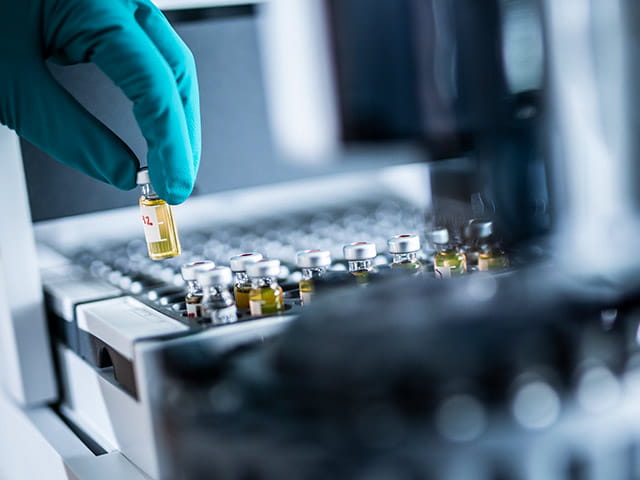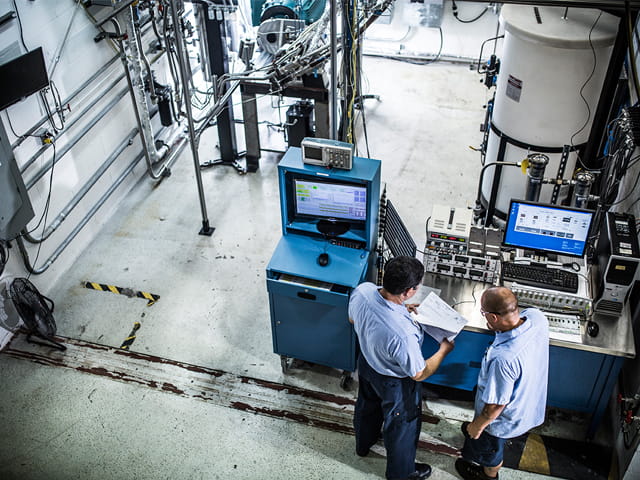Fuel and lubricant quality testing, quality control and conformance testing
By ensuring the quality of new or stored fuels and lubricants, you can prevent costly machine downtime and failures caused by using a product that doesn’t meet its quality requirements. Product quality inspections can also help you improve storage instructions and protect your brand as a result of less failures. Our laboratory holds extensive capabilities ranging from routine tests to several specialized tests and technical investigations, along with decades of experience in this field.
The products are tested to international ISO, ASTM, DIN standards and MIL specifications, covering over 200 test methods where more than 40 methods are accredited to ISO/IEC 17025.
Our quality control analysis services of new and stored fuels and lubricants cover:
Fuel
- Biofuel
- Jet fuel
- Gasoline
- Diesel fuel
- Aviation gasoline
Oil
- Engine Oil
- Hydraulic Oil
- Instrument Oil
- Transmission Oil
- Aviation Turbine Oil
- Corrosion Preventive Oil
Grease
- 润滑脂
- Solid film lubricant
- Corrosion preventive grease


